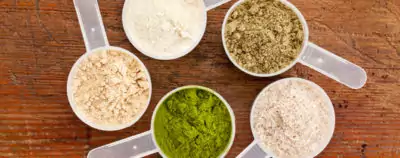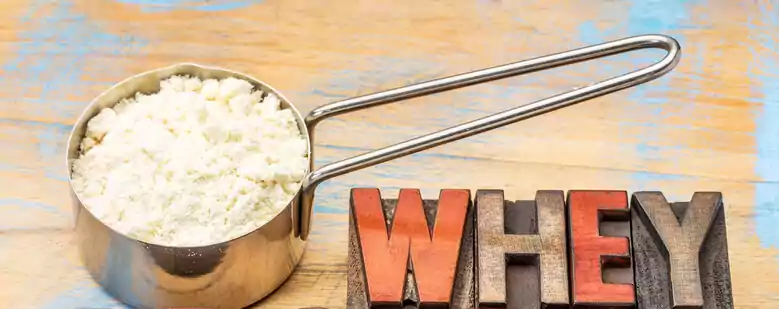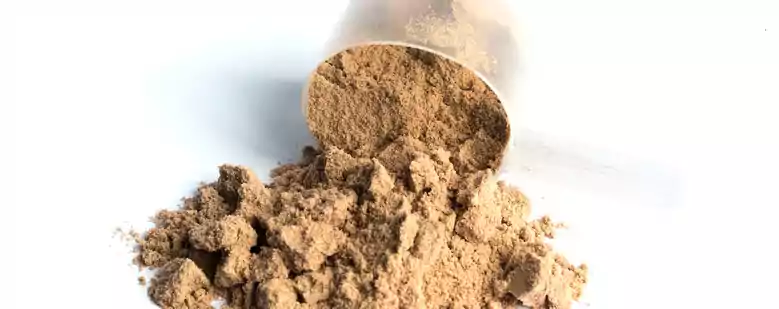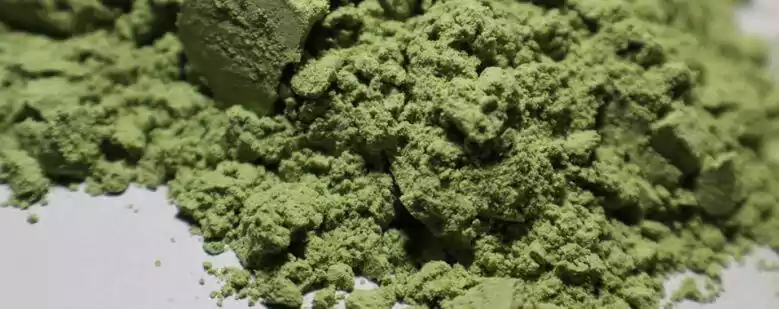
Living Well
What Is The Best Protein Powder?
Nov 18, 2016Have you been feeling sluggish and fatigued? Do you feel like you simply don’t have the energy to carry out simple everyday chores by dusk? Chances are that your body isn’t getting enough protein. And that is especially true for those of you who are vegan or prefer a Best protein powder.
As one of the three main macro nutrients our body needs for survival, protein plays a crucial role in muscle growth, weight loss and wellness. Healthy proteins play a key role in several aspects of body weight regulation. They help you
- Feel more Satiated
- Help Build Muscle Mass
- Keep Blood Sugars Stable
- Repair and Maintain Healthy Skin and Hair
- Prevent Muscle wastage and
- Assist in Hormone Production.
Proteins are also essential to keep your mind sharp and prevent brain fog. So you see, proteins are very important!
You could do a few things to tip the dietary scale in your favor on protein intake by adding things like quinoa to your diet. However, it’s not always possible to get your daily recommended dosage of protein through diet alone these days. The DRI (Dietary Reference Intake) is 0.8 grams of protein per kilogram of body weight, or 0.36 grams per pound. That means – 56 grams/day for the average sedentary man, and 46 grams/day for the average sedentary woman. If you lead an active lifestyle, that number goes up correspondingly. If your diet doesn’t supply the DRI of protein every day because you’re too busy to cook a protein-rich meal every day or are vegan, protein powders may be one of the options for you.
Protein Powders: The Biggest Mistake To Avoid While Taking Them
It is important to note that people who are recommended protein powders by their trainers or gym buddies are also told to go low on fat – the standard body building mantra. That is one of the biggest pitfalls to avoid, when considering extra protein intake.
Extra proteins can deplete the crucial Vitamin A from the body, if unaccompanied by a proportionate increase in good fats. Vitamin A is stored in the liver, to be used for a whole range of bodily functions – including hormone creation, immune actions, good vision and hearing, building strong bones, etc. When you increase your intake of protein, your body needs extra Vitamin A to synthesize those proteins.
If you don’t have enough in your diet, not only will you not be able to use the extra proteins properly, you will also run out of Vitamin A for other vital functions. Vitamin A is a fat-soluble vitamin, most abundant in good fats. Butter, ghee, full cream milk, organic grass fed meat are all rich sources of Vitamin A. So if you choose to, for reasons of convenience or religious preference, to get proteins from a protein powder rather from whole foods like meat, make sure you’re getting plenty of good fats in your diet as well.
Different Protein Types And What Is The Best Protein Supplement For You?
Whey Protein
The most common of them all, it contains easily digestible essential amino acids along with an impressive array of minerals and vitamins. Whey protein reigns supreme when it comes to post-workout shakes as it helps repair muscle mass post workout and also increases muscle size and strength. However, this is a dairy-based protein powder, so not the best option for vegans.
Casein Protein
This is the second dairy-based protein; it digests slower due to a complex interaction with stomach acids. Since it slowly releases essential proteins and amino acids into the bloodstream over an extended period of time, casein protein is perfect as a pre-workout shake, or for those who like a protein drink before bedtime when their bodies are in a semi-starvation state for 7 to 10 hours. However, research has proven that whey and casein proteins can be used interchangeably too.
Soy Protein
A common choice of the best protein supplement for vegans and vegetarians alike, soy protein has been associated with reduced cholesterol levels. However, soy protein has also been linked to potential disruption of hormone levels when ingested in excess, thanks to the isoflavones in soy. The jury is still out on whether or not soy proteins negatively impact your health in the long run, but most scientists believe that there’s no reason to worry about the potentially-negative isoflavones in soy as long as you limit soy-based foods in addition to your soy protein shakes.
Egg Proteins
If you are looking for an option of what is the best protein powder in a slow-release protein powder form, egg proteins come out on tops as something that can be taken anytime of the day.
Pea Proteins
If you have specific dietary considerations and are on the lookout for a plant-based protein powder that can boost your daily intake of amino acids, pea protein powders are the answer. Naturally fat and cholesterol free as well as free from dairy, these are perfect for those who are lactose-intolerant, vegan, or allergic to gluten. Pea proteins also a good choice for those who notice gastric distress (or any other stomach problem, really) when using dairy-based protein powders.
Brown Rice Proteins
These are 100% plant-based, gluten-free and also dairy-free. Research has proven that brown rice protein powder benefits are at par with whey proteins, making them an excellent choice for vegans as well.
Hemp Proteins
Hemp seeds aren’t just a great source of proteins but also for omega-3 and omega-6 fatty acids. It’s a highly digestible, 100% plant based protein that’s another great choice for vegans, vegetarians, those who have gastric distress, and also those who are lactose-intolerant or allergic to gluten. The only downside – the high fat content gives them a higher calorie count, so they aren’t the best choice for those also looking to lose weight.
Protein powders vs Whole Foods
Can protein powders replace nutritious whole foods? The answer is NO. However, there is a caveat to this scenario. If you don’t carefully measure out protein portions in your meal, or are vegan/vegetarian, chances are that you simply aren’t getting enough proteins from whole foods.
Not eating enough protein will affect your weight, your health and your recovery from exercise. Our body needs proteins on a cellular level to live and to renew. This is especially true if you’re doing strenuous work in the gym, trying to build muscle, etc. You can use protein powders if you simply cannot get enough from natural sources, but remember the earlier caveat about ensuring you’re not low on Vitamin A.
Vegan Protein Powder Blends: Worth The Hype?
If you do your research well and choose one of the above mentioned plant-based protein powder blends, it doesn’t necessarily have to be advertised as ‘Vegan Protein Powder ‘for you to get the best amino acid profile. However, some vegan protein powders have added fiber to make them more filling, becoming a better choice for weight loss.
The best vegan protein blends are those that mix two or more protein sources. Pea proteins are deficient in the amino acid Cysteine, while brown rice protein powders are low in amino acid Lysine. Combine them, and you get the right mix.
10 Simple Tips to Pick the Best Protein Powder For You
- Since there are limitless choices in protein powders today, how do you know which one is best for you? Here are 10 simple tips on how to pick a protein powder that’s perfect for your specific needs.
- If you are looking to gain muscle mass, choose whey proteins as these have a higher biological value than other protein powder types.
- If your goal is to lose weight, look for protein powder blends with no added sugars or artificial sweeteners. Also, protein powders with added BCAAs are designed to aid in muscle growth and weight gain, so avoid these as well.
- If you are diabetic, make sure your protein powder comes with no added sugar and has no more than 5gm of carbohydrate per serving.
- People with gastrointestinal problems are better off with protein powders that don’t contain lactose and gluten.
- As a rule of thumb, pick protein shakes that don’t have added fillers. Some manufacturers add coconut flour or psyllium to save money; look out for these undesirable fillers.
- Also avoid protein powders that contain added thickeners and gum, as these can add to gastric discomfort.
- Some protein powders advertised for weight loss can contain added vegetable oils and fats to make the taste creamier. These are best avoided, as these are trans fats you don’t need.
- Also, rule out added dextrins/maltodextrins. These raise the glycaemic load which can lead to fat storage. They’re added to many budget-friendly protein powders to bulk it up and also make them easier to mix.
- If you have dietary constraints but need an economical choice, opt for a pea protein powder. It’s highly digestible, hypo-allergenic and easier on the pocket.
If you are a pro athlete or a fitness enthusiast, its best to pick a quick-release protein powder and take it within 60 minutes of your workout. However, if you are looking for a protein powder to supplement weight loss, choose a low-release formula as protein powder meal replacement.
Finally, don’t forget the caveat about getting sufficient Vitamin A via good fats, whenever you choose to up your protein intake. Here’s to a stronger you!








